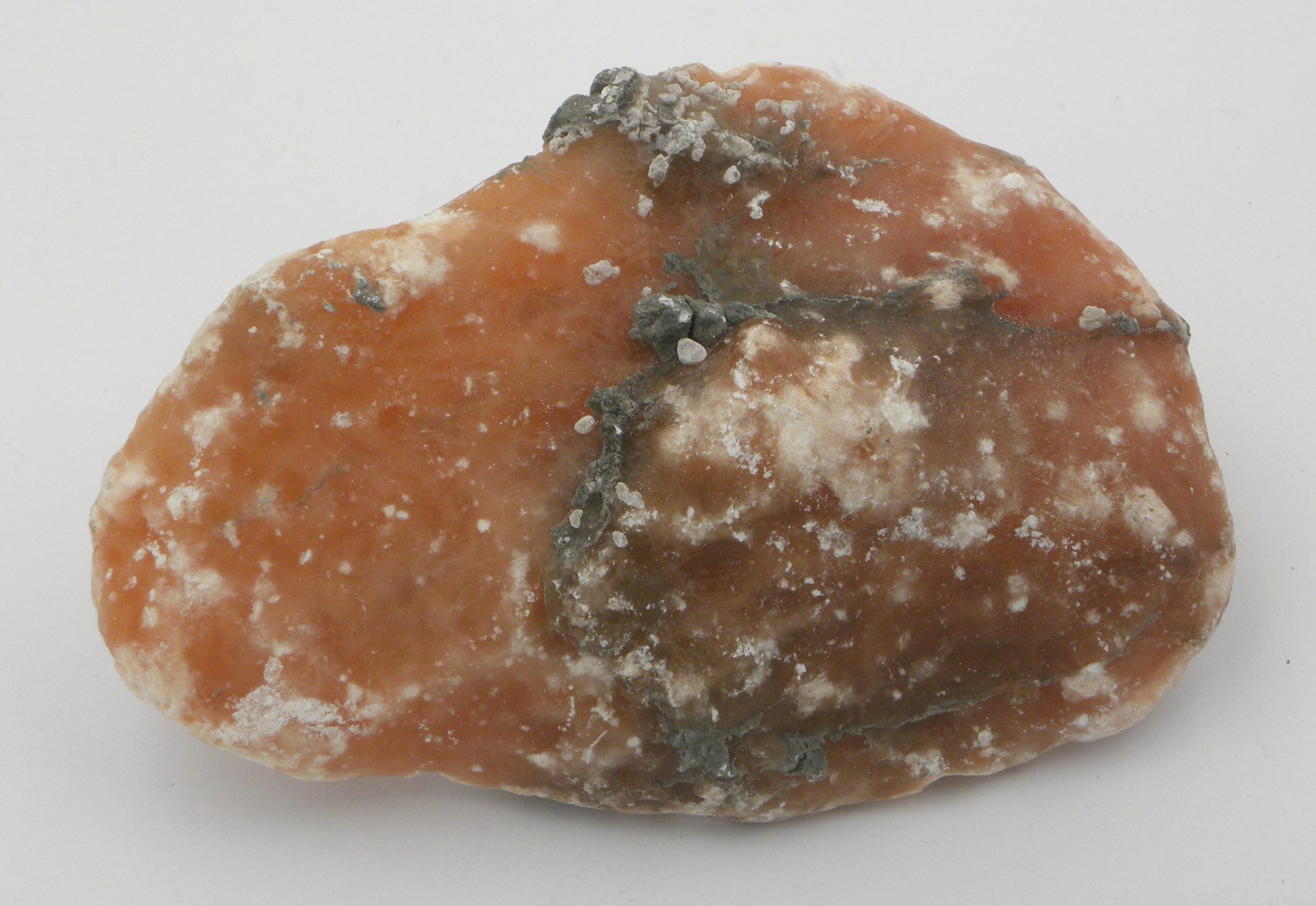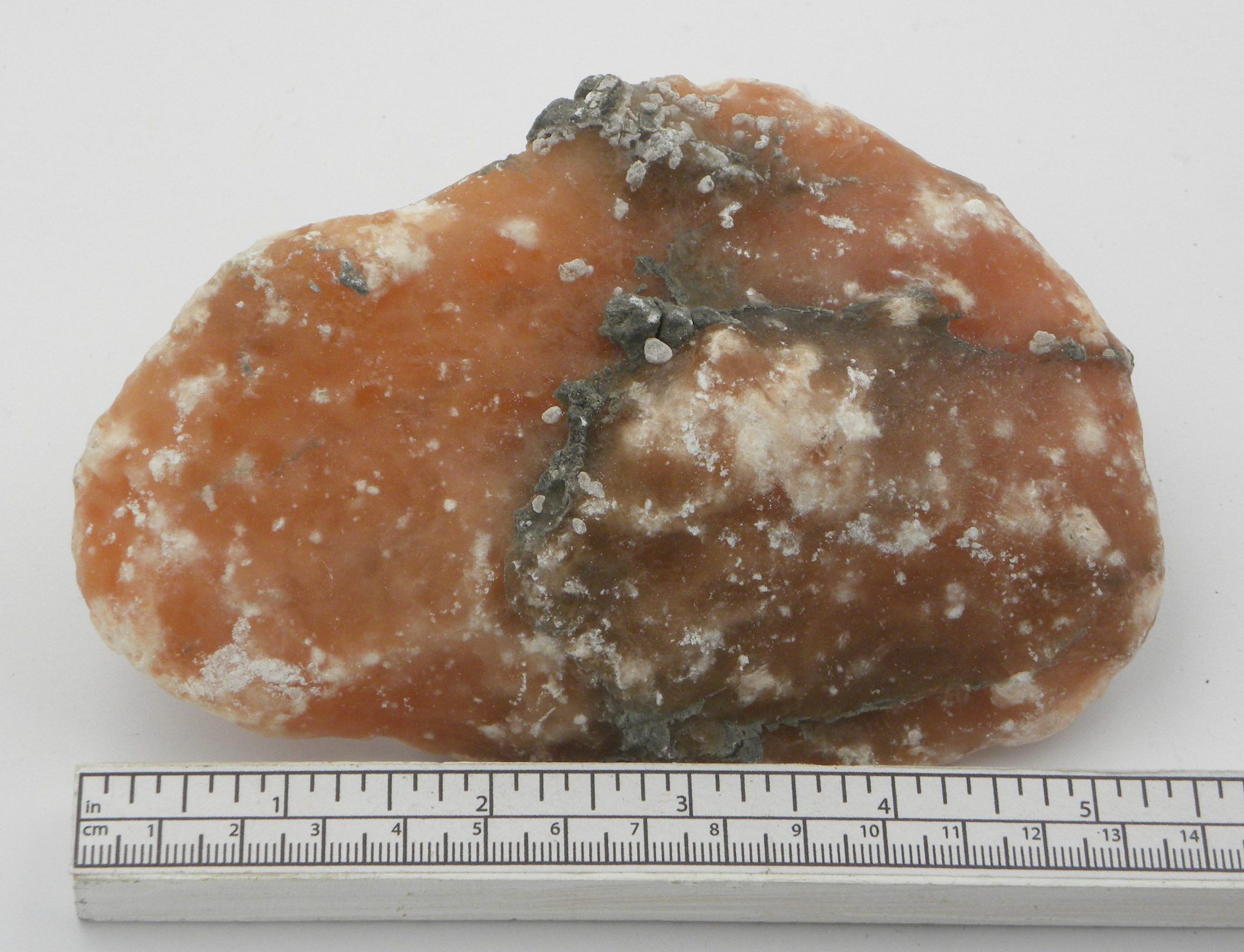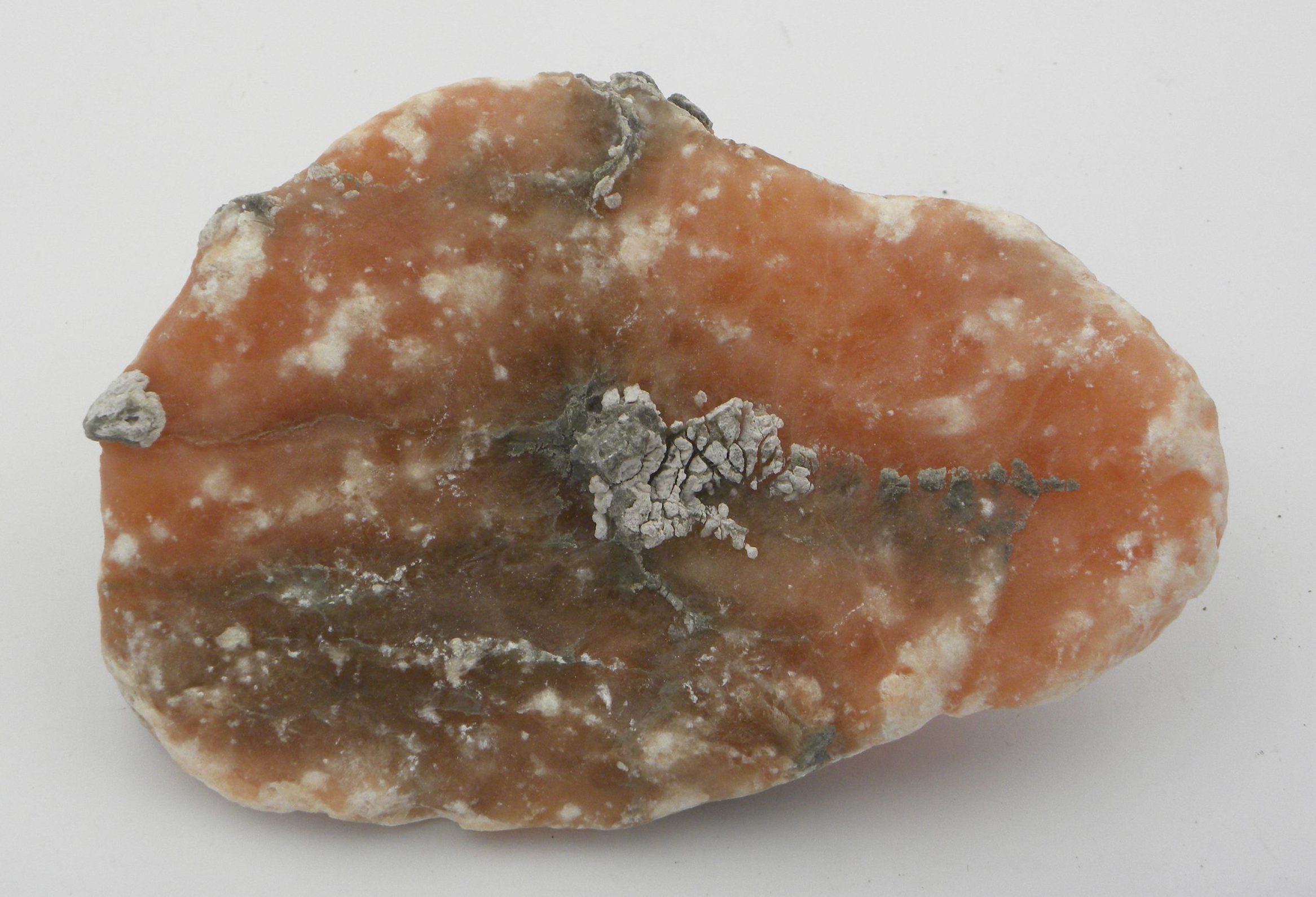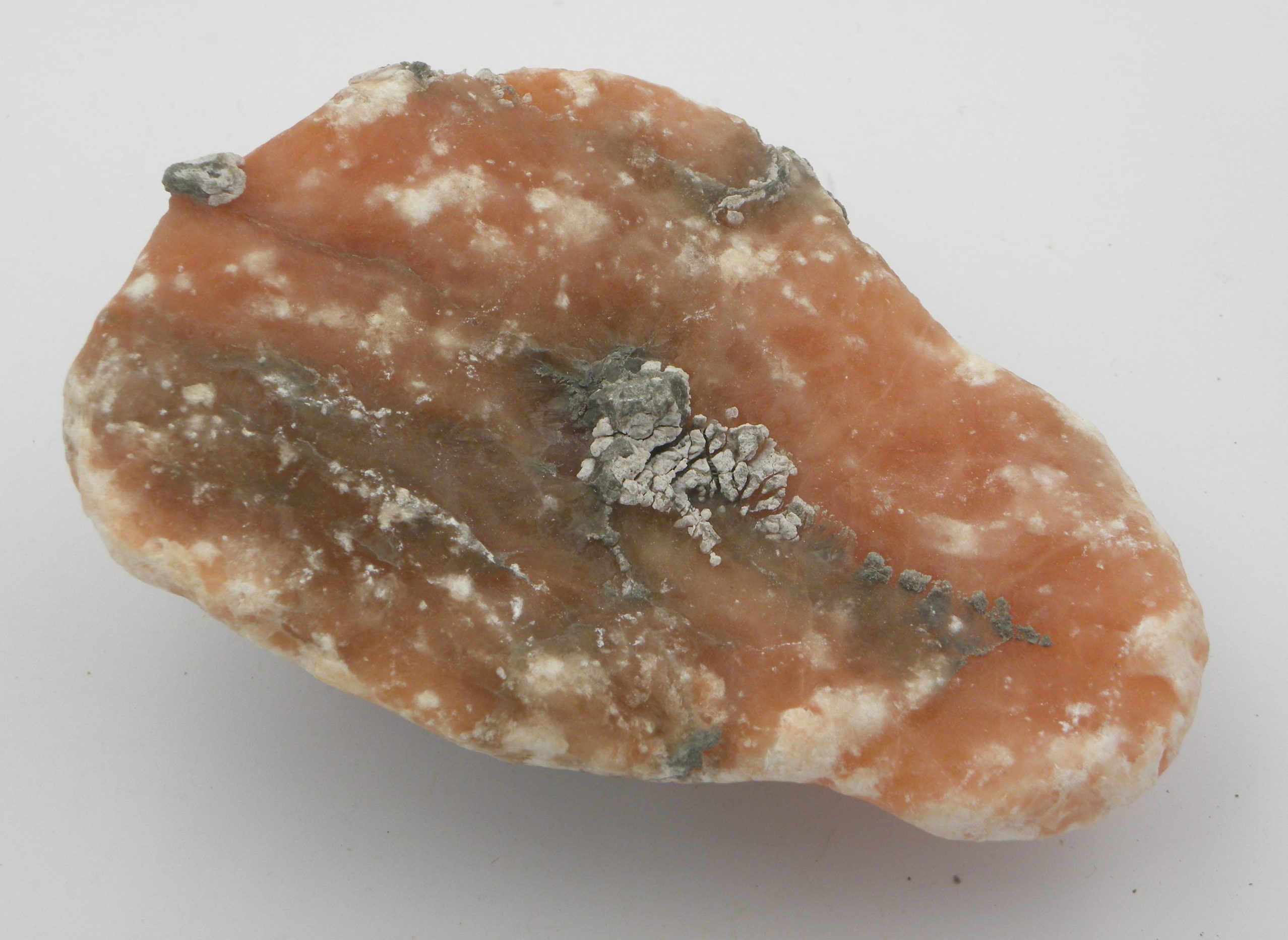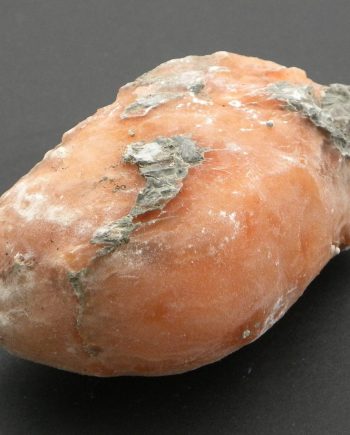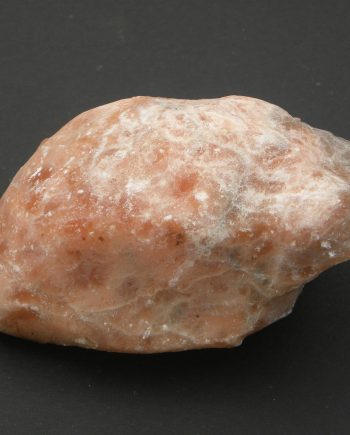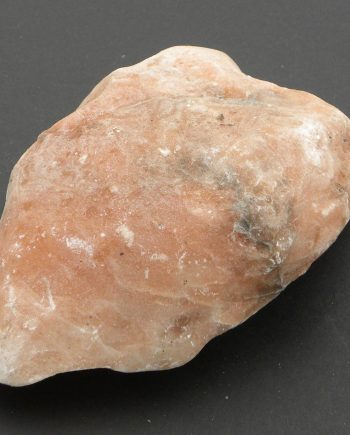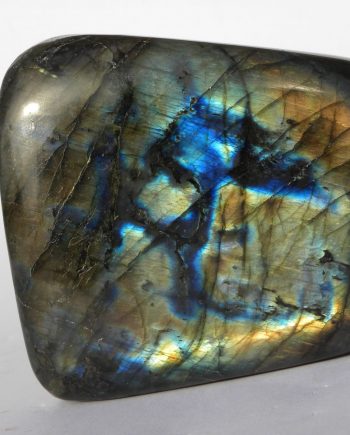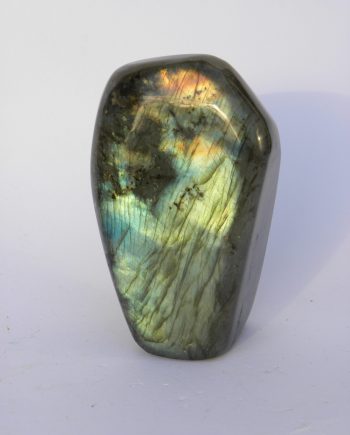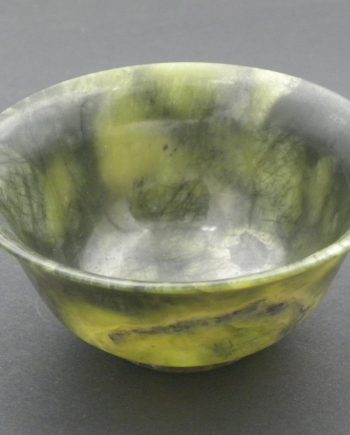Description
Somerset Alabaster, Gypsum (calcium sulphate)
This lovely specimen of Somerset Alabaster, or Gypsum (calcium sulphate) has a lovely salmon pink colouring and also the typical fine grain. It has come from Blue Anchor Bay, North Somerset. This medium size specimen is beautifully translucent when held up to the light. Like most specimens that come from this beach, the sea has gently smoothed the edges making it into a fine display piece. Alabaster is a crystalline form of Gypsum, a hydrous sulphate of calcium. It is classified as an evaporite mineral, which is millions of years old. It was created by the evaporation of lakes, which left the gypsum behind to solidify. The nodular pink gypsum or alabaster comes from the green and grey mudstone at Blue Anchor Bay. Pieces of the Somerset Alabaster/Gypsum (calcium sulphate) from this area have also traditionally been popular with sculptors. Because of its fine grains the gypsum is easy to polish. It is a softer and also more easily workable alternative to marble.
Alabaster gets its name from the Greek word ‘alabaster’s‘. The ancient Greeks and Romans regarded this as an important mineral for carving and also used it for making storage and drinking vessels. When cut in thin sheets, alabaster is sufficiently translucent enough to let the light through. These days the largest workable deposits of Alabaster are in the Ebro Valley in Aragon, Spain.
Return to Crystals and Minerals Return To Minerals A-Z


